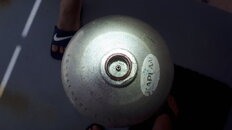Hey, guys! I'm not here to "out" any operators or anything so I won't mention them, but would like to tell a cautionary tale for others to be aware of. We had a customer come into the store for regulator service on a reg that failed at about 60 feet while diving in the Galapagos recently. Turns out the first stage completely filled with tank debris, blocking off the air supply from the tank. The diver had an "out of air" emergency and did an air share with the DM. He's fine.
"But what about the dip tube?" is the question we asked, and the question you are probably asking yourselves right now. Well, good question. They would not inspect the valve/dip tube status in front of the customer, which I guess I understand, but it's a little shady. Thinking about it, it may be possible that due to the pandemic there are tanks sitting around at various shops around the world and not being used or inspected properly. Especially if a dive op has been hurting financially and feel they can't afford the expense right now. I would caution everyone to be vigilant and at least check the inspection dates on tanks, especially from places that have been closed or awhile. It may not have prevented this emergency, but it sure seems like a good idea now more than ever. Happy diving!
"But what about the dip tube?" is the question we asked, and the question you are probably asking yourselves right now. Well, good question. They would not inspect the valve/dip tube status in front of the customer, which I guess I understand, but it's a little shady. Thinking about it, it may be possible that due to the pandemic there are tanks sitting around at various shops around the world and not being used or inspected properly. Especially if a dive op has been hurting financially and feel they can't afford the expense right now. I would caution everyone to be vigilant and at least check the inspection dates on tanks, especially from places that have been closed or awhile. It may not have prevented this emergency, but it sure seems like a good idea now more than ever. Happy diving!




